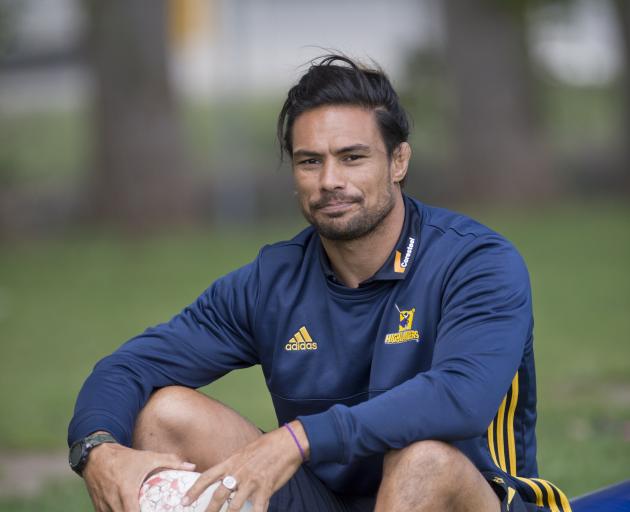Lifestyle
Tributes Flow for Shane Christie, Rugby Advocate and Leader

Shane Christie, a former flanker for the Tasman Mako and Highlanders, was remembered for his courage and advocacy for player welfare during a heartfelt funeral service in Nelson. He passed away unexpectedly at the age of 39, leaving behind a legacy of dedication to rugby and a commitment to addressing the risks associated with head injuries.
Christie, who retired from professional rugby in 2017 due to severe post-concussion symptoms, had become a vocal advocate for improved understanding of brain injuries in the sport. He openly discussed his belief that he was suffering from chronic traumatic encephalopathy (CTE), a condition linked to repeated head trauma, which can only be definitively diagnosed posthumously.
The Trafalgar Centre was filled with family, friends, and former teammates, including ex-All Blacks, who gathered to pay their respects. Tasman Mako captain David Havili spoke of Christie as the ultimate teammate, saying, “You taught us the values of mateship, a team-first mentality, and standing up for your people.” Havili emphasized that Christie’s influence would remain ingrained in the culture of the Mako, stating, “Your legacy will live on forever at this club.”
Christie’s former girlfriend, Holly Parkes, expressed profound sorrow over his suffering from symptoms of repeated concussions for nearly a decade. She reflected on the physical and emotional toll these injuries took on him. “He described it as an electrical circuit board, misfiring, giving him shooting pains and a constant ache that never left him,” Parkes shared. She wished she could have intervened during his career to prevent the damage he sustained while playing.
In addition to his on-field achievements, Christie was a strong advocate for player welfare. Craig Morice, a lawyer who befriended Christie during his negotiations with New Zealand Rugby (NZR), recounted their early interactions. Morice pushed for urgent medical attention for Christie in 2017 as his health deteriorated. A neurological specialist advised that he should not return to playing rugby, which prompted Christie to seek a deeper understanding of concussion and CTE.
Christie was determined to ensure that future players would not suffer as he did. In 2018, he and Morice met with NZR officials to initiate an independent review into the management of concussions in professional rugby. Morice noted that Christie was adamant that the review should address broader issues beyond his own experience.
An extensive report was released in April 2019, containing five recommendations related to concussion management, but it has not been made public, much to Christie’s disappointment. Morice recalled Christie’s feelings of responsibility towards his teammates, stating, “Shane told me he thought he had let his teammates and friends down by not protecting them more.”
Following the death of his former teammate, Billy Guyton, in 2023, Christie co-founded the Billy Guyton Foundation to raise awareness about brain injuries in rugby and advocate for better safety measures. Guyton became the first professional rugby player in New Zealand to be diagnosed with CTE in 2024.
Christie’s contribution to rugby began in his youth. Born on July 23, 1985, in Palmerston North, he moved to Wellington at age 10, where he attended Upper Hutt College. He later settled in Nelson, balancing a building apprenticeship with his rugby career. Christie debuted for the Tasman Mako in 2010, later captaining the team during a successful period that included their first championship title in 2013. His career also included notable stints with the Crusaders and Highlanders, where he played a crucial role in their historic Super Rugby title in 2015.
Off the field, friends described Christie as passionate and adventurous. Close friend Craig Moore highlighted his dedication to various pursuits, including building, surfing, and traveling. “Shane’s life was one of passion; whatever he turned his hand to, he gave everything,” Moore noted.
Christie’s sister, Katrina Christie, reflected on their family’s grief following his death. She mentioned the outpouring of support on social media but also lamented the spread of misinformation regarding his struggles. She expressed a desire to have shielded him from the consequences of rugby. “Though our grief is deep, so too is our gratitude for the time we had with you,” she said.
In accordance with his wishes, Christie’s brain has been donated to the New Zealand Sports Human Brain Bank for ongoing research into neurodegenerative diseases. His legacy as a player, leader, and advocate will continue to resonate within the rugby community as discussions around player safety and brain health evolve.
-

 World4 months ago
World4 months agoTest Your Knowledge: Take the Herald’s Afternoon Quiz Today
-

 Sports4 months ago
Sports4 months agoPM Faces Backlash from Fans During Netball Trophy Ceremony
-

 Lifestyle4 months ago
Lifestyle4 months agoDunedin Designers Win Top Award at Hokonui Fashion Event
-

 Entertainment4 months ago
Entertainment4 months agoExperience the Excitement of ‘Chief of War’ in Oʻahu
-

 Sports4 months ago
Sports4 months agoLiam Lawson Launches New Era for Racing Bulls with Strong Start
-

 World5 months ago
World5 months agoCoalition Forms to Preserve Māori Wards in Hawke’s Bay
-

 Lifestyle4 months ago
Lifestyle4 months agoDisney Fan Reveals Dress Code Tips for Park Visitors
-

 Health4 months ago
Health4 months agoWalking Faster Offers Major Health Benefits for Older Adults
-

 Politics4 months ago
Politics4 months agoScots Rally with Humor and Music to Protest Trump’s Visit
-

 Top Stories5 months ago
Top Stories5 months agoUK and India Finalize Trade Deal to Boost Economic Ties
-

 Health2 months ago
Health2 months agoRadio Host Jay-Jay Feeney’s Partner Secures Visa to Stay in NZ
-

 World5 months ago
World5 months agoHuntly Begins Water Pipe Flushing to Resolve Brown Water Issue









